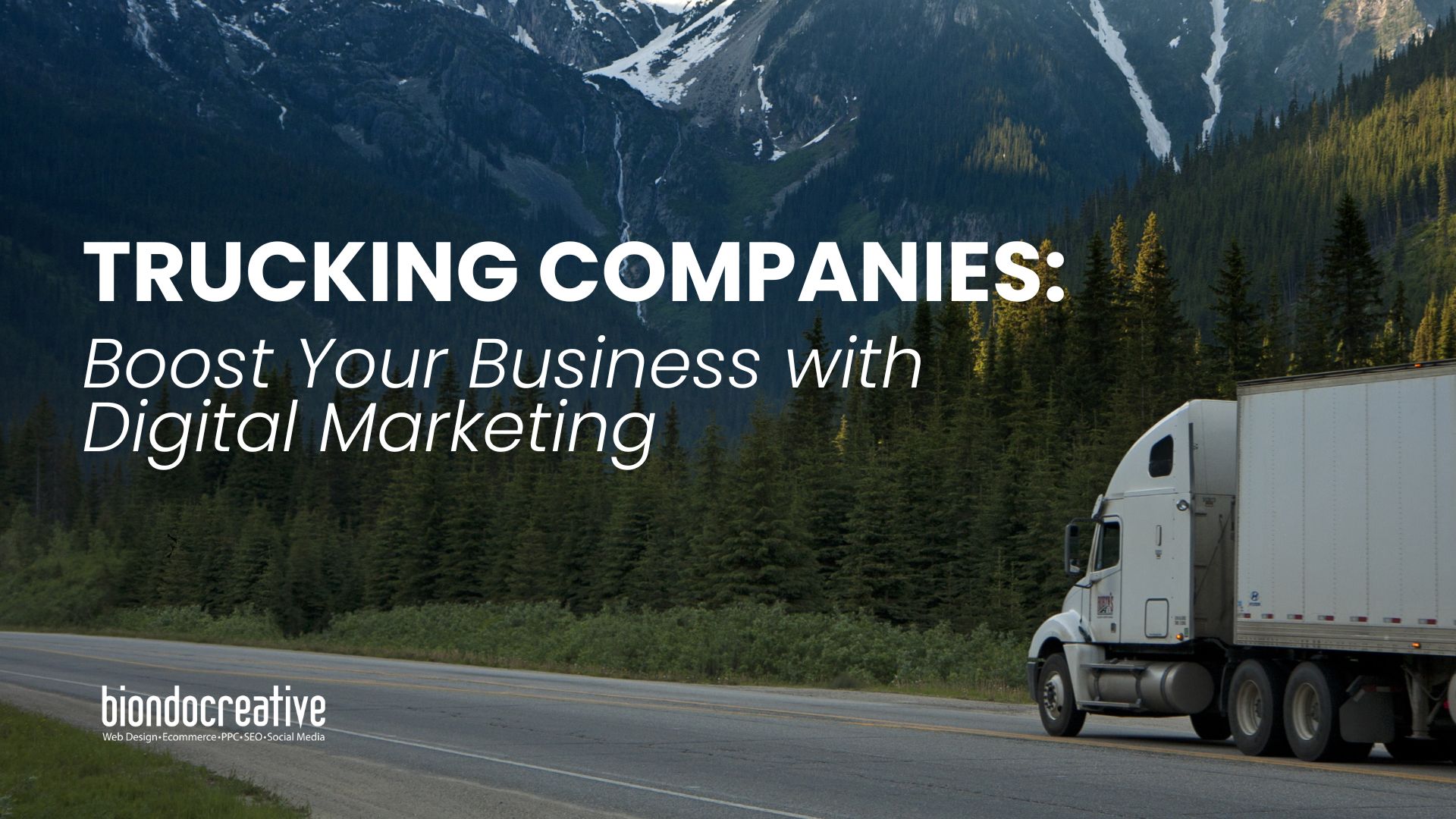For small and mid-sized trucking companies, digital marketing plays a crucial role in increasing visibility, attracting new clients, and staying competitive in an industry dominated by larger fleets. By focusing on niche marketing strategies, smaller trucking businesses can build a strong brand presence and establish lasting customer relationships. Here’s how specialized digital marketing can work for your trucking company.
1. Develop a Niche-Specific Website
A professional website tailored to your company’s niche is essential. Key elements should include:
- Clear details on specialized services (e.g., refrigerated transport, flatbed trucking, last-mile delivery).
- An easy-to-navigate layout optimized for mobile users.
- A blog with industry-specific content to establish authority.
- A client portal for quotes, tracking shipments, or managing accounts.
2. Targeted SEO for Your Specialty
Search engine optimization (SEO) should be tailored to your niche. Consider:
- Using keywords that reflect your expertise (e.g., “hazmat trucking services in Texas” or “reefer truck transport for perishables”).
- Publishing blog posts that address specific industry pain points (e.g., compliance with DOT regulations, fuel efficiency tips for small fleet owners).
- Strengthening local SEO with Google My Business, Yelp, and trucking directories.
3. Niche Social Media Marketing
Rather than broad social media efforts, focus on platforms and content that resonate with your target audience:
- Use LinkedIn to connect with businesses that need your specialized services.
- Create Facebook groups or pages for industry networking and client engagement.
- Share behind-the-scenes videos, driver spotlights, and real-time updates on Instagram or TikTok.
- Engage with online trucking forums and niche-specific communities.
4. PPC Advertising with a Niche Approach
Pay-per-click (PPC) advertising can be highly effective when focused on your specialty:
- Use geo-targeting to reach businesses in your service areas.
- Run ads with messaging tailored to specific industries (e.g., “Dependable refrigerated trucking for the food industry”).
- Create landing pages that align with your niche to maximize conversion rates.
5. Personalized Email Marketing
Email marketing should be customized to your niche and client base. Strategies include:
- Sending industry-specific newsletters (e.g., updates on freight regulations for specialized loads).
- Offering exclusive deals for long-term clients.
- Automating follow-ups for inquiries related to specialized services.
6. Authority-Driven Content Marketing
Content marketing can position your company as an industry expert. Consider:
- Producing case studies on successful deliveries in your niche.
- Writing thought leadership articles about logistics challenges in your sector.
- Hosting webinars or Q&A sessions about niche-specific topics (e.g., best practices for livestock transport or strategies for LTL freight management).
7. Specialized Directory Listings and Reviews
Ensure your trucking business is listed in industry-specific directories and review platforms such as:
- Freight broker and logistics directories.
- Trucking and logistics trade association listings.
- Niche platforms like DAT Freight & Analytics or TruckingInfo.
- Encouraging satisfied customers to leave reviews highlighting your specialized services.
8. Performance Tracking and Adjustments
Monitoring results is key to refining your strategy. Use tools like Google Analytics, Facebook Insights, and CRM platforms to track:
- The performance of niche-targeted ads.
- Organic traffic and conversion rates from SEO efforts.
- Engagement levels on social media and email campaigns.
Conclusion
For small and mid-sized trucking companies, digital marketing strategies must focus on niche expertise to stand out in the crowded transportation industry. By tailoring your website, SEO, social media, and content marketing to your specialty, your trucking company can attract the right clients, build credibility, and drive sustainable growth.
